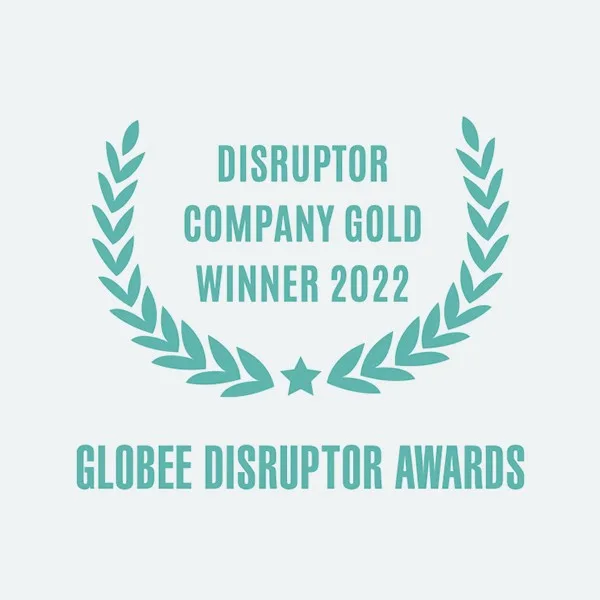

Exploring the Mind of a Founder: Why Investors Want to Understand Your Strategic Thinking
31st July 2023
When preparing for investment, founders often find themselves inundated with requests for various projections, market analysis, go-to-market plans, growth strategies, and exit plans.
While it may seem burdensome to delve into these details, it is crucial to understand that investors are not merely interested in the final numbers and plans. Instead, they seek to gain insights into how the founder thinks and approaches challenges.
In this article, we will explore the significance of ‘strategic thinking’ in the startup ecosystem and how it influences investor confidence.
Understanding the investor’s perspective

Investors play a vital role in the success of startups. They provide the necessary capital, guidance, and network to help a business thrive. However, investors are also taking calculated risks when backing a founder and their vision. They need to assess the founder’s ability to navigate the dynamic and often unpredictable landscape of entrepreneurship. This is where strategic thinking comes into play.
Related:The Importance of an Exit Strategy
Strategic thinking – a window into the founder’s mind

When investors request projections, market analyses, and other strategic documents, they are essentially seeking to understand the founder’s thinking process. By scrutinising how founders calculate and articulate these elements, investors gain valuable insights into their analytical skills, critical thinking, and ability to make informed decisions.
Projections and Financial Forecasts
Projections and financial forecasts serve as a glimpse into a founder’s ability to assess the potential growth and profitability of their business. While it may be challenging to predict the future accurately, the investor is more interested in understanding the founder’s methodology and assumptions behind these projections. This showcases the founder’s understanding of market dynamics, competitive landscape, pricing strategies, and revenue streams.
Market Size Analysis
Investors often request founders to research and present the total addressable market (TAM), serviceable addressable market (SAM), and share of market (SOM) estimates. While it may appear unnecessary for founders to extensively research a market that seems obviously huge, it demonstrates their ability to think critically and evaluate market opportunities. By articulating the market size, founders showcase their understanding of target customers, potential demand, market segmentation, and growth potential.
Go-to-Market and Growth Strategies
Investors are keen to evaluate how founders plan to bring their product or service to market and achieve sustainable growth. A well-crafted go-to-market plan demonstrates strategic thinking and a deep understanding of the target audience, distribution channels, pricing strategies, and competitive advantages. It also reveals a founder’s ability to adapt to market dynamics and proactively address challenges.
Exit Strategies
While exit plans may seem premature during the early stages of a startup, they provide crucial insights into the founder’s long-term vision and strategic thinking. Founders who have a clear exit strategy demonstrate an understanding of industry trends, competitive landscape, potential acquirers, and valuation considerations. It reassures investors that the founder has a well-rounded perspective and is not solely focused on short-term gains.
Strategic thinking and investor confidence

Investors rely on their assessment of a founder’s strategic thinking to make informed investment decisions. By evaluating a founder’s ability to think critically, analyse data, and develop coherent strategies, investors gain confidence in the founder’s capability to adapt to challenges, identify opportunities, and drive the business forward.
Mitigating Risks
Strategic thinking enables founders to identify potential risks and develop contingency plans. Investors appreciate this proactive approach as it demonstrates the founder’s ability to navigate uncertain situations and safeguard the business.
Identifying Opportunities
A strong strategic mindset allows founders to identify emerging opportunities and capitalise on them. By demonstrating how they evaluate market trends, consumer behaviour, and technological advancements, founders can position themselves ahead of founders seeking the same capital.
Adapting to Changing Landscapes
The business landscape is constantly evolving, and startups must be agile and adaptable to stay ahead. Strategic thinking equips founders with the mindset and skills necessary to navigate these changes effectively. Investors seek founders who can anticipate shifts in the market, respond to new competitors, and pivot their strategies accordingly. By showcasing their ability to think strategically, founders instil confidence in investors that they can weather storms and adapt their business models when necessary.
Building Scalability and Sustainability
Investors are not just interested in short-term success; they seek startups with long-term growth potential. Strategic thinking allows founders to lay the foundation for scalability and sustainability. By developing well-thought-out growth strategies, founders demonstrate their ability to scale operations, expand into new markets, and build a sustainable business model. Investors appreciate founders who can articulate a clear path to profitability and long-term success.
Investment is about founders not ideas
“One of our accoicates was part of a founding team that, at the time, raised the UK’s biggest-ever seed round – £65 million – for a concept.
“They had an incredible team around them. But because they were raising £65 million, they weren’t going to your usual family offices or venture capital funds. They knew they had to pitch to private equity.
“So, they were pitching a concept business to private equity – which is pretty unusual. But they also had a team that really understood what private equity firms look for.
“One of the key things private equity firms care about is net interest margin – often referred to by its acronym, NIM. So, they put NIM as a footnote on every single slide in their pitch deck. And over time, it became a subtle but effective way of saying, “We understand what you care about. We’re on your side. We speak your language. We’re a safe pair of hands for you to invest in.””
Bringing this back to early-stage founders
“For founders raising more typical funding rounds, this whole game isn’t just about showcasing a brilliant idea. It’s about proving that you can speak the investor’s language. If you can speak their language, they will trust you more than someone else – even if that other person has an equally great idea.
“Why?
“Because speaking their language shows that:
- You understand their concerns.
- You want to protect their capital.
- You’ve thought about strategies to do that.
- You know how you’re going to take this to market, scale it and ensure it doesn’t just remain an idea that goes nowhere.
- You have the skills to launch and grow a business, not just build a product.
“When you start speaking in their terms and focus on the things they care about, you stop being just another founder with an idea – you become part of their world. You become someone they naturally want to trust with their money.”
The difference between an inventor and an entrepreneur
“If you don’t do this, you risk coming across as just a crazy inventor – someone with a great idea but no execution skills.
“And the truth is, anyone can have a great idea.
“We’ve all been in a bar or a pub where someone’s come up with a “brilliant” business idea and their mate has said, “You should turn that into a company – we’ll be millionaires, Rodney!” It happens all the time. But that doesn’t mean they’re actually capable of executing that idea.
“Investors know this. They have to filter through hundreds of pitch decks and hundreds of founders – each one convinced they’ve got the next big thing. Their job is to scan through all of that noise and find the few people who can genuinely turn their idea into a commercial opportunity – one that can scale and deliver a return.”
No one invests in just an idea
“A great idea, on its own, has never raised investment. No one has ever backed JUST an idea. Investors only back incredible founders – founders they believe can execute, scale and deliver a return. So, when you’re pitching, remember: They’re not looking for a great idea. They’re looking for a great founder.”
James Church, Robot Mascot co-founder
Strategic thinking: a competitive advantage

In addition to gaining investor confidence, strategic thinking offers several benefits to startups beyond the investment process. Let’s explore how it can be a competitive advantage in the startup ecosystem.
Strategic Resource Allocation
Startups often face resource constraints, whether it’s financial, human, or time-related. Strategic thinking helps founders optimise resource allocation by prioritising initiatives that have the highest impact on business growth. By evaluating the potential return on investment and aligning resources accordingly, founders can make informed decisions and maximise the value they deliver from limited resources.
Effective Decision Making
In the fast-paced startup environment, founders are constantly faced with critical decisions that can shape the trajectory of their business. Strategic thinking enables founders to assess the pros and cons of different options, evaluate risks, and make well-informed decisions. By considering both short-term and long-term implications, founders can avoid reactive decision-making and steer their startups towards sustainable growth.
Competitive Positioning
Understanding the competitive landscape and identifying unique value propositions are crucial for startups to differentiate themselves in crowded markets. Strategic thinking allows founders to analyse their competitors, identify gaps in the market, and position their offerings effectively. By leveraging their strategic insights, founders can develop compelling messaging, build strong brand identities, and establish a competitive edge.
Fostering Innovation
Innovation is at the heart of successful startups. Strategic thinking encourages founders to embrace a mindset of continuous improvement and innovation. By critically assessing existing processes, products, and services, founders can identify opportunities for innovation and disruption. Strategic thinking empowers founders to challenge the status quo, explore new ideas, and drive forward-thinking initiatives that can propel their startups to success.
Conclusion
In the world of startups and entrepreneurship, strategic thinking plays a pivotal role in attracting investor confidence and driving long-term success.
While the requests made by investors for what should be in your pitch, projections or business plans may initially appear as tedious exercises, they provide investors with the insights they need into a founder’s ability to think critically, analyse data, and develop coherent strategies.
Investors can then rest assured that this ability to think strategically will enable the founders they are investing in to navigate uncertainties, identify opportunities, and build scalable and sustainable businesses. Essentially de-risking the investment opportunity for the investor.
Embracing strategic thinking is not just a requirement for attracting investment; it is a mindset that empowers founders to thrive in the dynamic startup ecosystem.
If you would like to learn more about raising investment, grab your free copy of our best-selling book, Investable Entrepreneur. You can get a free copy here.
UP NEXT:
How to Survive Investor Rejection – 4 Top Tips for Founders
Exploring the Mind of a Founder: Why Investors Want to Understand Your Strategic Thinking
Investable Entrepreneur takes you through our winning methodology – the process we use to increase our client’s chances of raising investment by more than 30x.
“This book will help you translate your entrepreneurial vision into something investors can get behind.”
Daniel Priestley, CEO and founder, Dent Global and four times best-selling business author

Keep up to date with what we’re up to via email






Copyright ©Robot Mascot Ltd. All rights reserved.




